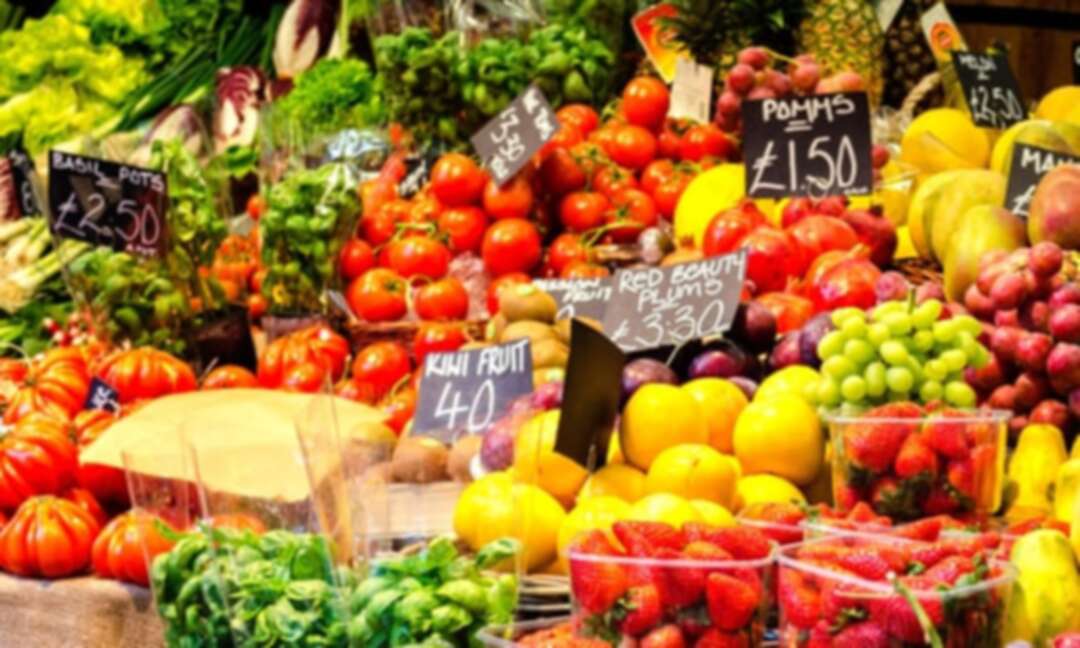-
Lawyers to argue for mother and baby's right to Healthy Start in UK

Exclusive: Scheme aiming to reduce child poverty and health inequalities excludes some of poorest families
An 11-month-old baby and her mother are bringing a case in the high court to try to secure the baby’s right to free vitamins, formula milk and nutritious food.
In the first case of its kind, lawyers for the mother and baby are arguing the baby should not be excluded from the UK government’s Healthy Start scheme, which aims to reduce child poverty and health inequalities. The programme provides vitamins, nutritional advice and weekly vouchers to buy healthy food such as fresh fruit and vegetables or infant formula to low-income families with pregnant women and children up to the age of four. It is intended to benefit those with the “greatest need”.
However, under current Home Office rules, the eligibility criteria excludes some of the UK’s poorest children from migrant backgrounds. As part of the hostile environment, some migrant families, even if they have the right to live and work in the UK and have British children, are unable to claim mainstream benefits, which is the trigger for eligibility for Healthy Start. Changes to the immigration rules and to the eligibility criteria for welfare in 2012 means many parents who are lawfully in the UK cannot claim any benefits.
Studies have shown that children in this group often suffer extreme poverty and deprivation. Thousands of migrant families, often headed by a single mother, are barred from accessing benefits, leaving them in dire “working poverty”.
Many have part-time jobs as carers and other kinds of low-paid work to fit around childcare. As a result of these immigration rules, babies and toddlers from the most financially deprived households are going without the nutritious food and vitamins needed for a healthy start in life.
In December 2020, judicial review proceedings were launched, challenging the eligibility criteria for the scheme on various grounds, including that it is indirectly discriminatory against children and mothers from black and minority ethnic backgrounds, breaches their human rights and is inconsistent with the intended purpose of the scheme to alleviate poverty among the most economically disadvantaged children.
The high court has granted permission for the challenge to proceed to an expedited trial.
The income of the mother of the 11-month-old baby is almost 40% less than that received by families claiming welfare benefits, who are eligible for the Healthy Start scheme. On this very low income, the mother is struggling to afford a healthy and nutritious diet for her baby.
Olivia Halse, associate solicitor at Matthew Gold & Co, who is bringing the legal challenge, said she welcomed the high court giving the case the green light.
She said: “It is an unfortunate fact that children from low-income families and those of BAME backgrounds are more likely to develop poor nutritional outcomes due to the lack of nutrition they receive at a young age. This can impact their health, development and wellbeing throughout childhood and later in life. This scheme was intended to address these issues and help eliminate food poverty and health inequalities. But the eligibility criteria adopted excludes the very poorest children.
“We hope that these legal proceedings will result in a change to the eligibility criteria so that thousands of disadvantaged families, most of whom will be from BAME backgrounds, will be able to benefit from the scheme and these children will have a chance of a healthy start in life.”
A spokesperson for the Department of Health and Social Care said they could not comment on ongoing legal proceedings.
source: Diane Taylor
Levant
You May Also Like
Popular Posts
Caricature
BENEFIT Sponsors BuildHer...
- April 23, 2025
BENEFIT, the Kingdom’s innovator and leading company in Fintech and electronic financial transactions service, has sponsored the BuildHer CityHack 2025 Hackathon, a two-day event spearheaded by the College of Engineering and Technology at the Royal University for Women (RUW).
Aimed at secondary school students, the event brought together a distinguished group of academic professionals and technology experts to mentor and inspire young participants.
More than 100 high school students from across the Kingdom of Bahrain took part in the hackathon, which featured an intensive programme of training workshops and hands-on sessions. These activities were tailored to enhance participants’ critical thinking, collaborative problem-solving, and team-building capabilities, while also encouraging the development of practical and sustainable solutions to contemporary challenges using modern technological tools.
BENEFIT’s Chief Executive Mr. Abdulwahed AlJanahi, commented: “Our support for this educational hackathon reflects our long-term strategic vision to nurture the talents of emerging national youth and empower the next generation of accomplished female leaders in technology. By fostering creativity and innovation, we aim to contribute meaningfully to Bahrain’s comprehensive development goals and align with the aspirations outlined in the Kingdom’s Vision 2030—an ambition in which BENEFIT plays a central role.”
Professor Riyadh Yousif Hamzah, President of the Royal University for Women, commented: “This initiative reflects our commitment to advancing women in STEM fields. We're cultivating a generation of creative, solution-driven female leaders who will drive national development. Our partnership with BENEFIT exemplifies the powerful synergy between academia and private sector in supporting educational innovation.”
Hanan Abdulla Hasan, Senior Manager, PR & Communication at BENEFIT, said: “We are honoured to collaborate with RUW in supporting this remarkable technology-focused event. It highlights our commitment to social responsibility, and our ongoing efforts to enhance the digital and innovation capabilities of young Bahraini women and foster their ability to harness technological tools in the service of a smarter, more sustainable future.”
For his part, Dr. Humam ElAgha, Acting Dean of the College of Engineering and Technology at the University, said: “BuildHer CityHack 2025 embodies our hands-on approach to education. By tackling real-world problems through creative thinking and sustainable solutions, we're preparing women to thrive in the knowledge economy – a cornerstone of the University's vision.”
opinion
Report
ads
Newsletter
Subscribe to our mailing list to get the new updates!






















